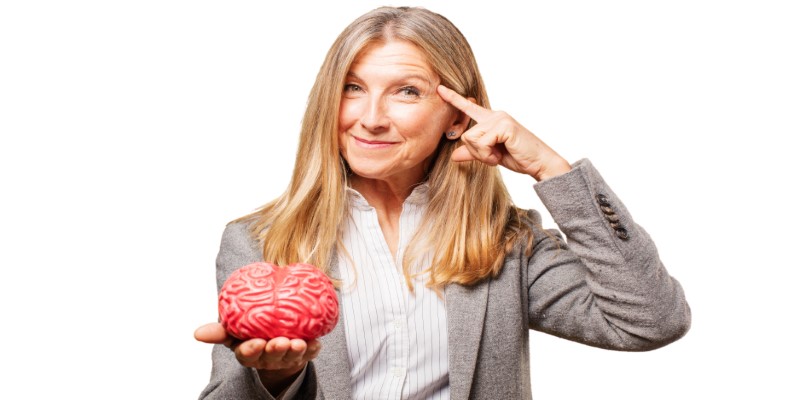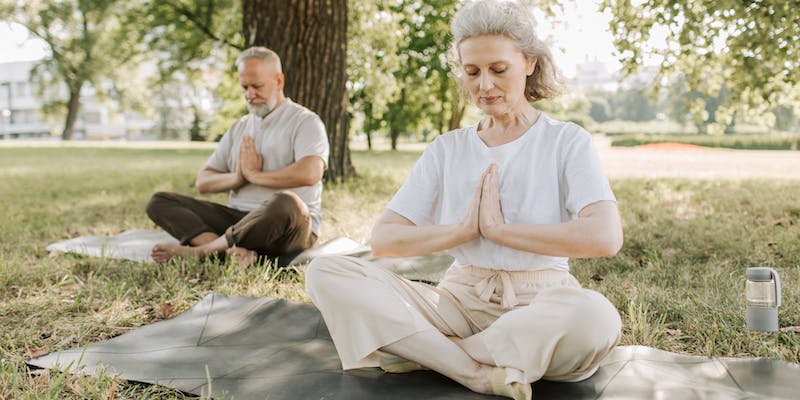Top 8 Exercises to Support Brain Health as You Age
Feb 27, 2024 By Nancy Miller
Our brains require exercise to stay healthy and sharp like our bodies do. Physical activity can assist in maintaining the health of our brains as we age. Exercise benefits both your body and brain in the same way. Moreover, it doesn't need to be extremely difficult! In older persons who are at risk of cognitive loss, adopting a basic aerobic exercise program can help enhance memory, focus, organization, planning, and multitasking, also known as executive function.
Continue reading this article to find out the top eight healthy brain exercises and why exercising can have such positive mental effects. Let's get started!
What are Brain Exercises?
Any mentally challenging activity is a brain exercise. At the same time, many people like playing brain games online, which provide a vast array of creative exercises to test their memory, concentration, and problem-solving abilities. Other critical memory skills are also stimulated by tangible games like bingo and jigsaw puzzles, as well as hobbies like model construction. The important thing is that they have to be challenging without being too extreme.
Why are Brain Exercises Important?

Your brain shrinks slightly in size and function as you age. Your brain's capillaries start to get smaller as a result of decreased brain activity, which limits blood flow. Your ability to remember things, respond quickly, manage your impulses, and make decisions may suffer as a result. However, exercising vigorously is one of the best ways to prevent age-related mental loss. Brain exercises help to speed up brain function and boost blood flow to the brain. Exercise can, therefore, enhance executive function and slow down the decline in performance.
8 Best Brain Exercises
These are the top eight activities that you should include in your plan to maintain mental health as you grow older.
Training with High-Intensity Intervals (HIIT)
Workouts involving high-intensity interval training (HIIT) are among the finest for maintaining brain health in addition to being beneficial for physical health. A small study published in Brain Sciences in February 2020 found that, in young individuals, high-intensity interval training (HIIT) is linked to better brain function than steady-state aerobic exercise.
Increasing your level of exertion may cause the protein, which is known as brain-derived neurotrophic factor or BDNF, that supports brain function, to be released. It functions as a kind of fertilizer, keeping our brain health vibrant and youthful while shielding us from stress and promoting brain growth.
Trail Running
It's possible that working out outside will provide you with greater mental benefits than inside exercise. A July 2019 review suggests that spending time in nature may improve memory, concentration, and creativity. The analysis discovered that spending time outside is linked to a decrease in stress, symptoms of despair, and anxiety. Heading outdoors regulates the benefits of exercise on the brain. Go outside whether you like to hike, snowboard, or mountain bike.
Yoga

It turns out that downward dogging may benefit mental clarity in addition to balance. Increased focus, processing speed (the amount of time it takes to complete a mental job), and decision-making are all linked to yoga. Bonus points if the program covers meditation. Research indicates that frequent meditation practitioners' brains have more outer layers, which may improve their capacity for information processing.
Tai Chi
Tai chi is another excellent activity for the wellness of your brain. It's a low-intensity mind-body exercise that's great for brain health since it may aid with memory and concentration, according to a September 2019 study. Tai chi improves brain connectivity, raises cognitive function, and increases blood oxygen content in the brain.
This may be the case due to the fact that tai chi is a form of neuromotor training, an exercise regimen that prioritizes balance, stability, responsiveness, and core strength. Your brain functions better the more balanced you are. Doing a form of exercise that enhances your equilibrium helps you concentrate on tasks and manage your moods.
Dance
Learning complicated dancing moves also presents a mental strain. Even more than traditional cardiovascular exercises like walking and cycling, dance training has the potential to enhance brain volume in older persons, according to a July 2017 study. The study also found that dancing enhanced neuroplasticity, or the ability of dancers' brains to develop and adapt to new experiences.
This is due to the fact that dancing improves interpersonal relationships, interaction, balance, coordination, and tolerance. The individuals had the chance to access the learning processes in their brains as a result.
Strength Training
Exercises that develop muscle and improve mental function include lifting weights and utilizing resistance bands. They help with balance and coordination, which can help you avoid falls and injuries as you get older. Try to focus on your main muscle groups when strength training two or three times a week.
The brain hormone irisin is found in lower concentrations in Alzheimer's patients than in mentally healthy people. Resistance exercise causes the release of this hormone.
Brain Teasers and Puzzles
Jigsaw puzzles, regardless of their complexity, need the ability to use a variety of visual-spatial working memory skills, such as identifying and recalling which pieces go into spaces with comparable shapes. For the health of your brain, mental activities are equally as vital as physical ones. Play games like brain training apps, Sudoku, or crossword puzzles to keep your mind active and sharp. These brain exercises can enhance memory and cognitive abilities by stimulating various brain regions.
Team Activities
Participating in group activities, such as playing ultimate frisbee or volleyball, offers the cognitive benefits of exercise combined with the interaction component. In older adults, social activities are linked to improved working memory, cognitive speed, and decision-making abilities.
Playing team sports increases the hormone oxytocin in your brain, which promotes interpersonal bonds. Since social interaction is the most significant factor in healthy aging, it is just as necessary as vitamin C. It has three times the power of everything else to maintain our youthful physical and brain health.
Conclusion
To sum up, maintaining your brain health is equally essential as maintaining your physical health. You can keep your brain healthy and preserve cognitive function as you age by maintaining an active lifestyle, participating in mental exercises, and establishing social relationships. You can assess your mental capacity, improve your cognitive abilities, and even learn a new skill by including brain exercises in your everyday routine.







